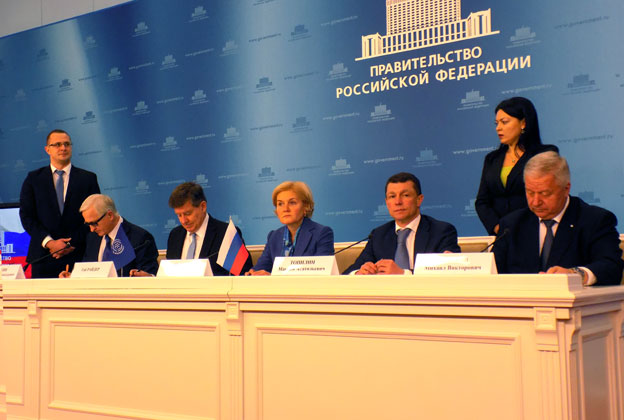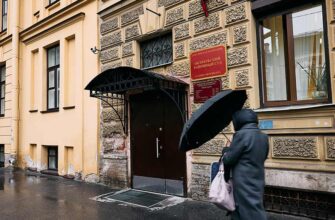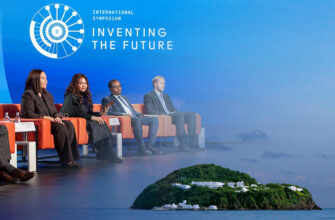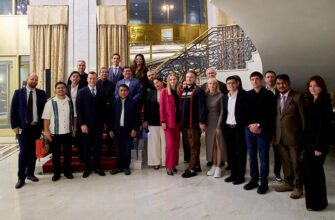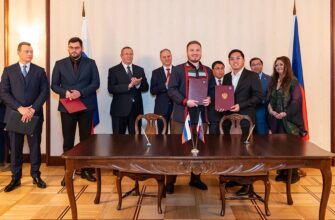21 November 2016 Russia signed a Program of cooperation with the International labour organization (ILO) for 2017-2020 years, based on national priorities in labor approach. The program provides:
- Promotion of international labour standards and dialogue in the social sphere;
- Cooperation in the field of social insurance and pensions;
- Compliance with decent working conditions and standards in workplaces;
- Raising productivity and expanding employment opportunities.
The program from the Russian side was developed by the Ministry of labour, Federation of Independent trade Unions and the Russian Union of Industrialists and entrepreneurs. This corresponds to the concept of “tripartism”, which is in fact the ILO, in its basic principle of operation. Following the signing of the Program, a work plan for its implementation with activities, deadlines, indicators and expected results will be developed.
The program is based on the goals and priorities of the Concept of long-term socially-economic development till 2020, as well as on documents of the ILO: promoting decent work and sustainable development for the period until 2030 and the initiatives of the Director General of the ILO, “the Future of the workplace”.
Russia has particular relevance to the ILO and it largely inspired the creation of the organization in 1919, as well as global labour laws. At the moment, Russia has signed 74 ILO conventions that, according to Deputy Prime Minister Olga Golodets, is a large number of ratified conventions according to international standards. Today two more important conventions are in the process of signing:
- On the prevention and control of professional risks;
- On safety and health in construction.
About the second Convention Olga Golodets stressed that it is particularly important for our country, and it is currently being successfully implemented, as we have halved occupational injuries.
The programme is based on national labor force. Contrary to some media concerns about plans to plans to increase share pf migrants’ labor, the Russian government relies on citizens by limiting the influence of migration processes. This is what explained in cultural-political magazine “E Vesti” Olga Golodets on the question of the role of migrants in the Programme:
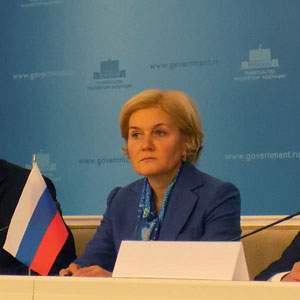
Olga Golodets: About migrants, colleagues, we have a program which we follow, which restricts the use of migrant labour in different sectors of the economy. Although employers argue that today there is not enough own workers in the labour market. If in some sectors migrant labour share is up to 10%, then, unfortunately, there are sectors which still admit a high percentage of migrants’ labour.
Of course, for our country, and the same is position of our trade unions, the employment of migrants has a negative impact on the market. It leads to the cheapening of labor in General, to export of capital from the Russian Federation becausethe income of the migrants is spent in the country from which they came. This is an additional social burden on our budget, because migrants use our institutions of health and education. And when we weigh all the pros and cons, it turns out that social burden, which we eventually receive, is not commensurate with the contribution to our economy that we have.
It turns out a serious imbalance that benefit, as a rule, the employer, and society pays, then there are the hidden subsidies of employers by society and by the state. Therefore, our policy is a gradual reduction of migrants, especially in those regions where there is a problem in the labour market.
In the international space, according to the Director General of the ILO guy Ryder, there are important discussions about changing the immigration laws.
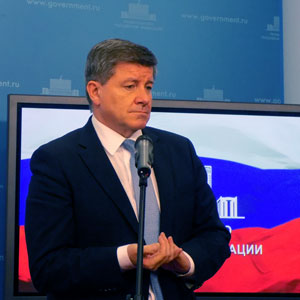
Guy Ryder: Very quickly than from international respect immigration The UN took a decision at September general assembly to adopt two instruments: global contract on immigration and the second global contract on refugees, i.e. separating two issues. So the direct answer to the question about international achieves on immigration in 2018. We should have two new global instruments. This is just now beginning negotiated, it will be very difficult, but it started.
On the question of cultural and political magazine “E Vesti” “where can be found the solution to increase productivity without excessive exploitation of employees?”, dear experts agreed that it is necessary to robotize the industry, and to pay good for work. Otherwise, each of them drew attention to the different approaches to efficiency.
Olga Golodets: We should pay more for quality labor and mechanize the production process. It really increases the costs, but we have to go so, because it increases capitalization of enterprises, and gives full guarantee that the company invests in Russia, it intends to survive here for long and has a long-term strategic benefits, including those for the Russian economy.
Guy Ryder: On the question on productivity, I think we all aware of the key improvements on productivity are skills, investments, organization of production effectively. And I think we are equally aware that they need to be a clear relationship between wages and productivity. We understand that in the end wages cannot sustainably grow, a real wages cannot grow sustainably more quickly than productivity, they depend on productivity. At the same time, wages should not grow less quickly than productivity, they should keep up. And just as the matter of fact, over last 30 years, a little bit more now at the global level the tendency was being for wages to increase less quickly than productivity in the world. With the result there has been reduction, globally speaking, in the share of wages in the national income. Sometimes I talked to trade union colleagues (not in Russia) to they are refused to link wage increases to productivity increases. They think it is not really business of trade unions. My response to them is if you have succeeded in linking wages to productivity your workers will be even better than they are today
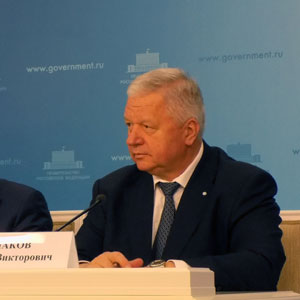
Michael Shmakov: I would largely agree with what said Guy Ryder, but the last point requires more discussion.
To increase productivity you need to apply the latest technology and newest equipment, which is capital expenditures in one or another business. For example, 10 diggers are cheaper than 1 excavator, but productivity of an excavator is 100 times higher than result of 10 diggers, but it requires initial capital costs. This is the first method and the second method, which is used worldwide and in Russia… It is known that in Russia wages are low compared to public productivity. And there are now new forms of work organization, production, production services in new technologies, digital technologies, and there is, of course, achieved business benefit and productivity increases, but productivity is growing much higher than wage increases of workers who are engaged in this process. So the reserves are there and they should be used, but without the use of advanced technology and advanced equipment, all this will remain just talk, we need actions.
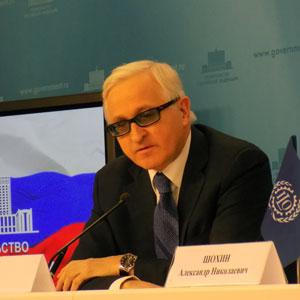
Alexander N. Shokhin: Regarding productivity, we must understand that high production displaces worker. For example, in the National technology initiative, approved by the President, shows one of the projects – the so-called autopilot vehicles. It is clear that few of us will dare to walk on the road where flying unmanned KamAZs, but, nevertheless, let us imagine that we developed it. Where we should put drivers, truckers and so on? Of course, it is the prospect of the distant future, but, nevertheless, we must look at the real balance between technological progress and still people have to work, have a decent job and then you need to think about what to take, what jobs we can create for those who are leaving traditional types of work. About the drivers, for example. While the answers to all these questions is no.
